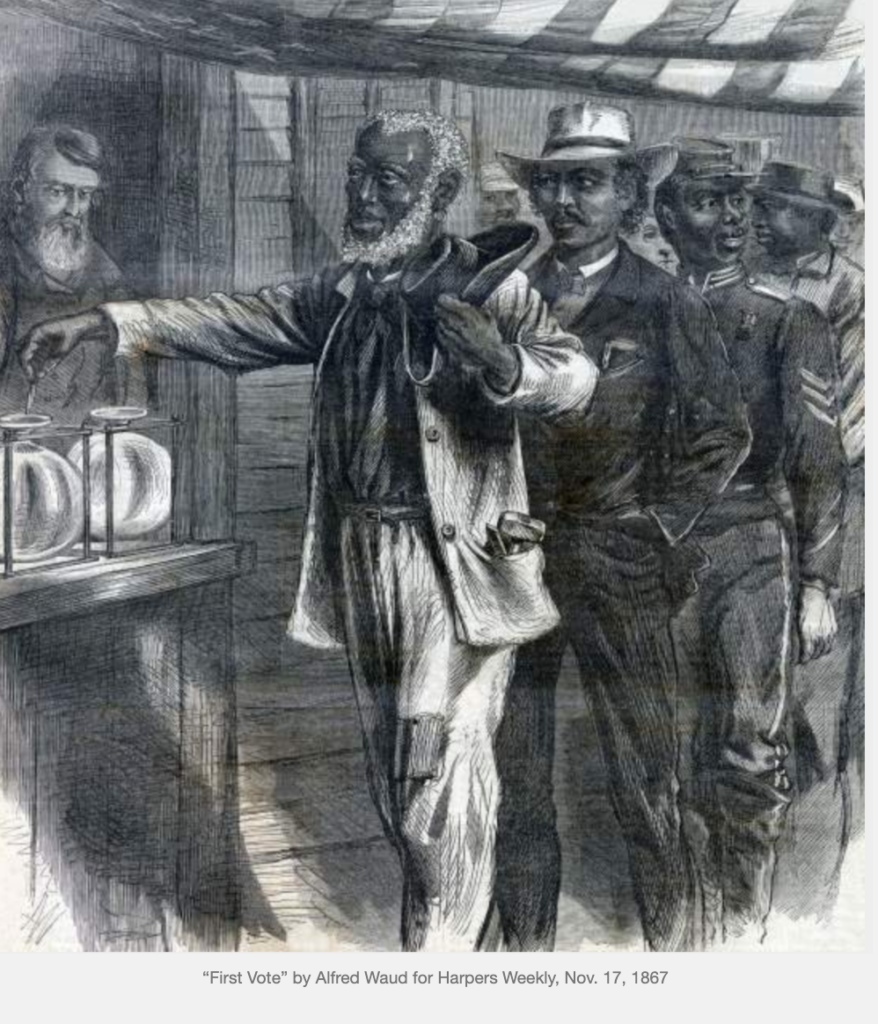“Slavery is not abolished until the black man has the ballot, or [while] any discrimination exists between white and black…”
–Frederick Douglass, (May 9, 1865)
Fifteenth Amendment (1869 / 1870)
Section 1. The right of citizens of the United States to vote shall not be denied or abridged by the United States or by any State on account of race, color, or previous condition of servitude.
Section 2. The Congress shall have the power to enforce this article by appropriate legislation.
ORIGINS: Reconstruction Act (1867) SEC. 5: And be it further enacted, That when the people of any one of said rebel States shall have formed a constitution of government in conformity with the Constitution of the United States in all respects, framed by a convention of delegates elected by the male citizens of said State, twenty-one years old and upward, of whatever race, color, or previous condition who have been resident in said State for one year previous to the day of such election, except such as may be disfranchised for participation in the rebellion or for felony at common law
DISCUSSION QUESTIONS
- The Fifteenth Amendment limited how states might restrict voting rights. What type of restrictions did it allow?
- How did the Grant administration fight to preserve the Fifteenth Amendment? Who was fighting hardest to nullify it during the 1870s?
FURTHER READING
Citizenship, rights, democracy — as long as these remain contested, so will the necessity of an accurate understanding of Reconstruction. More than most historical subjects, how we think about this era truly matters, for it forces us to think about what kind of society we wish America to be. –Eric Foner, 2015
Historian Eric Foner on the Fourteenth Amendment
- FEATURED COLLECTION: Prince of Emancipation (House Divided Project)
- Eric Foner, “Why Reconstruction Matters,” New York Times, March 28, 2015

